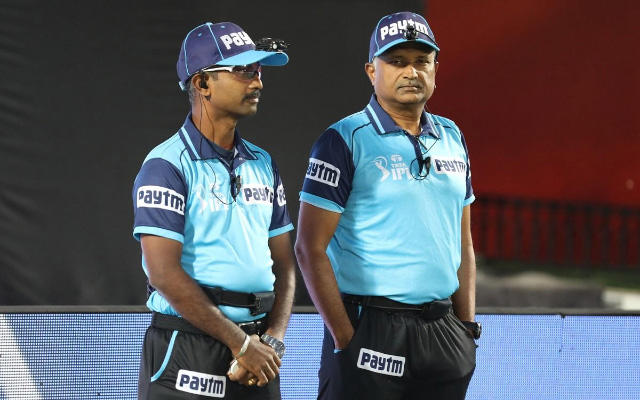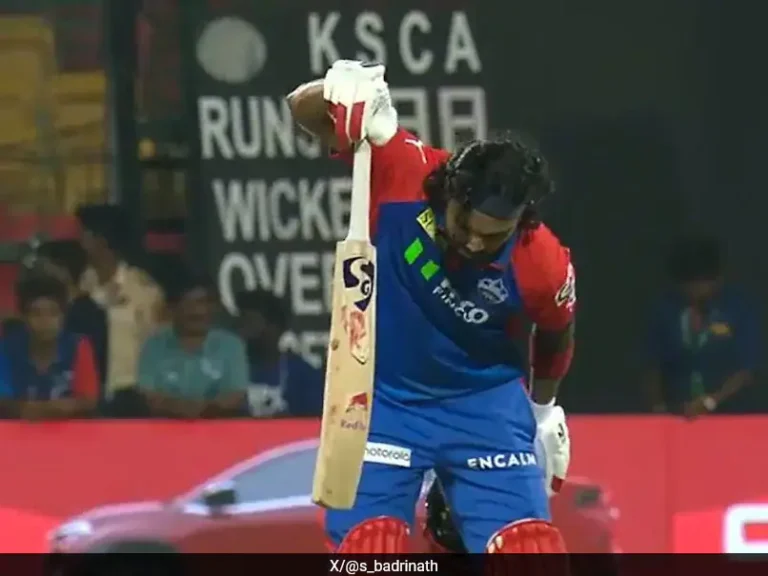
The Board of Control for Cricket in India (BCCI) has introduced significant changes to the role of the fourth umpire in the upcoming Indian Premier League (IPL) 2025 season. This move aims to improve match officiating, reduce delays, and ensure smoother game management. With the growing importance of technology and precision in cricket, the fourth umpire’s responsibilities have been expanded beyond their traditional duties.
Key Changes in the Fourth Umpire’s Role
Traditionally, the fourth umpire in IPL matches was responsible for assisting the on-field umpires with duties such as managing player substitutions, overseeing the usage of the Decision Review System (DRS) equipment, and ensuring compliance with playing conditions. However, under the new regulations, their role has been significantly expanded.
One of the major changes is the fourth umpire’s increased involvement in monitoring over rates. Slow over rates have been a persistent issue in T20 cricket, often leading to penalties for teams. With the revised rules, the fourth umpire will actively track the pace of play and ensure that teams adhere to the scheduled time. While captains will no longer face suspensions for repeated slow over rates, fines and other penalties will still be enforced, and the fourth umpire will play a crucial role in this process.
Additionally, the fourth umpire will now assist in verifying contentious decisions related to fair catches and boundary line judgments. While the third umpire primarily handles reviews, the fourth umpire will support them by analyzing additional camera angles and providing real-time inputs. This measure is expected to reduce errors in crucial match situations.
Stricter Enforcement of Code of Conduct
The BCCI has also empowered the fourth umpire to take a more active role in enforcing the IPL’s code of conduct. Previously, incidents of misconduct, such as players showing dissent, excessive appealing, or breaching the spirit of the game, were reported by on-field umpires and then reviewed post-match. Now, the fourth umpire can immediately flag such incidents, ensuring quicker resolutions.
For example, if a bowler oversteps the mark or a fielder engages in unsporting behavior, the fourth umpire can immediately alert the match referee. This change is expected to minimize controversies and maintain fair play standards throughout the tournament.
Enhanced Role in DRS and Technology Usage
With technology playing an increasing role in decision-making, the fourth umpire will assist in ensuring the proper functioning of the DRS system. They will coordinate with the third umpire to ensure that ball-tracking, UltraEdge, and HotSpot technologies are operating correctly. This responsibility is crucial in high-pressure games where accurate decisions can impact the outcome.
Furthermore, the fourth umpire will be responsible for monitoring the use of smart bails and LED stumps, which have become essential in modern cricket. If there are any technical glitches during a match, the fourth umpire will oversee quick resolutions, minimizing unnecessary delays.
Impact on IPL Match Management
The expansion of the fourth umpire’s duties is expected to streamline match operations and reduce unnecessary interruptions. By taking on additional responsibilities, the fourth umpire will allow on-field umpires to focus more on their primary task of officiating the game.
Moreover, with the fourth umpire actively tracking over rates and rule enforcement, teams will be more cautious about maintaining the required pace of play. This is likely to benefit viewers, as slow matches due to excessive delays have been a common concern.
BCCI’s Vision for the Future
The BCCI’s decision to strengthen the fourth umpire’s role aligns with its broader vision of improving match officiating standards in the IPL. With the league growing in global stature, the board aims to enhance professionalism in umpiring and minimize errors that could influence match results.
As cricket continues to evolve, the integration of technology and increased officiating support will be crucial in maintaining the IPL’s reputation as one of the most competitive and well-managed T20 leagues in the world. The expanded role of the fourth umpire is a step in this direction, ensuring greater accuracy, fairness, and efficiency in match proceedings.
With IPL 2025 set to feature these officiating enhancements, fans can expect a more seamless and professionally managed tournament, further elevating the standards of the league.

